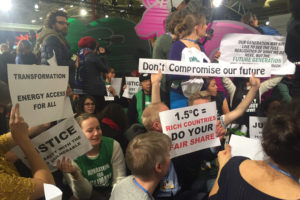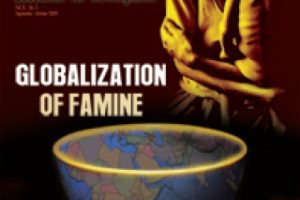APRN Secretariat
JOHANNESBURG, South Africa — Around forty (40) civil society educators, facilitators and trainers gathered in Johannesburg, South Africa on June 25 to 27, 2013 to attend the first Global Training of Trainers (Global ToT) on CSO Development Effectiveness. The Global ToT was among the major activities of the CSO Partnership for Development Effectiveness (CPDE) through its Working Group on CSO Development Effectiveness (WG on CSO DE)* to reach out and encourage more civil society organizations to look closely into their organization’s praxis as accountable and effective independent development actors. The CPDE is the unified platform coming out from the two civil society processes, post-Busan High Level Forum IV, i.e. the Better Aid (BA) and the Open Forum on CSO Development Effectiveness (OF).
The Training of Trainers aimed to develop the capacities of trainers, educators and facilitators to further promote the Istanbul Principles and the Siem Reap International Framework on CSO Development Effectiveness, at the country, regional and sectoral levels. The three-day training provided an opportunity for participants not only to be familiarized with the resources and tools produced to further the work around CSO development effectiveness, but also to walk through some of the discussions and activities developed in the Implementation and Advocacy Toolkits, CSO Wiki Page and the Practitioners’ Guide . The WG envisions that the participants will replicate the training in their country and/or constituency and further promote and implement the Istanbul Principles and the complementary tools.
CIVICUS Secretary General Danny Sriskandarajah, in his welcome address, reminded the participants that donors, governments and other development actors have not lived up to the promises they made around development. He said that for civil society, development effectiveness is essentially about citizen voices to say enough is enough.
CPDE, CSO Development Effectiveness and Enabling Environment
Asia Pacific Research Network (APRN) Chair Maria Theresa Lauron discussed the historical and political context of the CPDE. In her presentation, Ms. Lauron emphasized the important role played by CSOs, through BA and OF, in shifting the discourse of aid effectiveness (AE) to a more thoroughgoing development effectiveness (DE).
Ms. Lauron provided the background on civil society engagement in the aid effectiveness discourse, as well as how civil society struggled to gain official recognition as an independent development actor with multiple roles played in development. Civil society went to Busan as an independent development actor co-equal other development actors such as governments, and donor agencies. The civil society key messages were brought into the table through CSO Sherpa Antonio Tujan, Jr., now co-chair of the CPDE. Ms. Lauron also shared on the global CSO-led process which led to the consolidation of the Istanbul Principles, and the International Framework, which became the core civil society reference for its own effectiveness and accountability. The presentation also emphasized on the new structure and mandate of the CPDE, and how the work should synergize with other initiatives. In the end, she also shared that the CPDE has designed a multi-year plan which reflects activities at different levels of work. Ms. Lauron also added that all work of the CPDE fall on priority areas and shall all be coordinated within the structure. CPDE also branches out to different arenas of development work to improve CSO representation and participation. Besides the Global Partnership for Effective Development Cooperation (GPEDC), it also engages with the Policy Forum for Development (PFD) of the European Commission, Development Cooperation Forum (DCF), and the Post-2015 Development Agenda of the United Nations. Advocacy engagement works of the CPDE were done through its working groups, i.e. Working Group on CSO DE, Enabling Environment, Post- 2015 Agenda and Human Rights-based approach.
Ms. Ciana-Marie Pegus of CIVICUS delivered a presentation on CSO Enabling Environment. Ms. Pegus emphasized the current emerging international consensus on the importance of enabling environment for civil society, such as the recognition from the Busan Partnership Document (paragraph 22). She also shared that CIVICUS produced a State of Civil Society Report for 2013 which documents the current situations that CSOs experience in their country context. According to Ms. Pegus, CIVICUS is working out an Enabling Environment Index to track progress on commitments and actions following Busan HLF. The CPDE Working Group on Enabling Environment (EE) is now deep into fleshing out GPEDC Indicator No.2, which zeroes in on the issue of enabling environment for civil society. CIVICUS also co-chairs the CPDE WG on Enabling Environment, alongside the Reality of Aid- Africa.
After plenary presentations, participants were divided into break-out groups where they worked on activities in the Practitioners’ Guide. Break-out sessions served to be spaces to share their thoughts on the plenary discussions. Activities were also used to provide opportunities for interaction, and simulation for future outreach work on CSO DE in different levels of CPDE work, especially at the country and organizational levels.
Ways forward for CSO DE work
The participants were also asked to chart their own regional plans to bring the CSO DE work forward, which were presented in the plenary for sharing and discussion. Most plans from the participants centered on three areas of work for the CPDE, namely capacity development, outreach and expansion and advocacy and engagement.
Mr. Duncan Holmes of Canada together with Ms. Kemberley Gittens of Barbados plan to conduct capacity development interventions such as setting up virtual working groups and hosting several sessions in North America and the Caribbean. They also intend to produce a social media plan for their general public and media outreach for the two regions.
Participants from South Asia shared their plans of replicating the training to CSOs to their constituencies in their countries and in their region. Baseline research was also one of the key plans that they want to work on to guide succeeding works around CSO DE. The group’s plan to review existing country laws that directly and indirectly affect the existence of CSOs and their operations were presented by Jyotsna Mohan of India.
The group composed of participants from Asia-Pacific (South East Asia, Pacific and Central Asia) plans to improve coordination among CSOs and start building a database of knowledge and experiences around CSO DE. Social media will be utilized for expansion of the knowledge and will involve other stakeholders through sensitization workshops and policy dialogues.
The Africans were divided into two groups in doing the regional plan, one for Anglophones and the other for Francophone. Francophone Africans emphasized synergizing the work on CSO DE with their own regional concerns such as respect for human rights, freedom of expression, accountability, good governance, and transparency. They also believe that the work will actually contribute to the society’s recognition of the CSOs contribution to development which is one of the core principles of enabling environment.
The Francophone-African group planned to replicate the training with other organizations. They look forward to leveraging existing networks that they engage with to be able to take the Principles of CSO DE forward. They also look at the possibilities of building communities of practice to serve as a platform to share experiences and lessons learned.
Mr. Alejandro Barrios from Bolivia shared the initial reflections and plans of the Latin America group on how to move forward. The group linked programs on education, environment, and social empowerment to the CSO DE Principles. They also reflected that as CSOs look at their own effectiveness, there should be a unified understanding of what development really means, and then introduced the concept of buen vivir or living well or sustainable development for Latin Americans. CSOs also need to validate their own roles in the changing political, social and economic environment, and should be always informed with concrete plans on how to move forward.
Charlotte Boisteau of France plans to review the current state of play for appropriation and the proper implementation of the Principles at all levels of work. She plans to do internal workshops with other NGOs and local authorities in her country and continue analysis of CSO effectiveness to generate social change.
The regional plans were synthesized by Ms. Lauron in her presentation on the CPDE structure. She also clarified that although the plans are still on the drawing board, these will be inputs to the plans of the Working Group on CSO DE for the next three years. Once there is an agreement on including the regional plans to the CSO DE Working Group, they shall be done within the CPDE structure. Ms. Lauron also introduced the members of the Global Council, including the focal points. The whole training concluded with remarks made by Ms. Amy Taylor, Head of Partnerships at CIVICUS. ###
*The CPDE Working Group on CSO Development Effectiveness is co-chaired by Asia Pacific Research Network (APRN) and CIVICUS: World Alliance for Citizen Participation.

